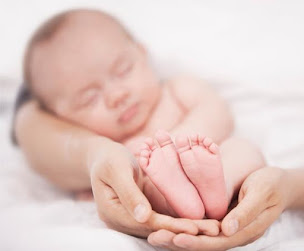The Asia Pacific Newborn Screening Market Is Growing with Increasing Incidence of Neonatal Diseases
Newborn screening has developed from a basic pee or blood screening test to a more thorough and complex screening framework fit for recognizing more than 50 distinct conditions. Newborn screening tests measure various markers in baby's blood that can be either diminished or expanded if a baby has certain infections.
Each newborn is tried for a gathering of wellbeing problems that are not in any case found upon entering the world. Babies are generally defenseless against infections like COPD, asthma, encephaliphitis, epilepsy, polio, and other respiratory illness, sickliness, leukemia, looseness of the bowels, and other uncommon sicknesses that outcomes in generous financial weight. Newborn screening portrays different tests that are performed during initial not many hours or days of a newborn's life. With a basic blood test, specialists can check for chemical related, hereditary, uncommon, and metabolic conditions that can cause genuine medical issues. Newborn screening forestalls extreme medical conditions and passing.
Rising instances of inborn illnesses in newborns, developing neonatal populace base, good government projects and enactments, and mechanical progressions are a portion of the central point driving the Asia Pacific newborn screening market development. As indicated by World Health Organization (WHO) and the Ministry of Defense (India) report, birth abandons represent 7% of all neonatal mortality and 3.3 million under five passings. The commonness of birth absconds in India is 6-7% which means around 1.7 million birth surrenders every year. Besides, WHO prescribed a newborn screening system to protect the wellbeing of youngsters around the world.
Moreover, WHO is assigning vital assets as an extra speculation of US$ 0.20 pennies per individual, which can save 2 of each 3 newborns in low and center pay nations by 2030. Hence, the interest for newborn screening is expanding to handle irresistible illnesses, like streptococcal pharyngitis, intestinal sickness, chickenpox, beating hack, flu, rubella, tuberculosis, polio, mumps, and measles. For example, Ministry of Health and Family Welfare, the Government of India, gives a few antibodies to babies, kids, and pregnant ladies through the Universal Immunization Program. As indicated by the WHO, around the world, around 86% of newborn children are immunized against 26 illnesses in 2018.
The Asia Pacific newborn screening market is quickly acquiring footing in the Asia Pacific, because of the expanding rate of birth and the expanding frequency of neonatal illnesses around here. As per UNICEF India, with the introduction of 25 million kids every year India represents almost one fifth of the world's yearly labors. Around 46% of every single maternal passing and 40% of neonatal passings occur during work or the initial 24 hours after birth. Pre-development (35 %), neonatal diseases (33%), birth asphyxia (20%) and inborn abnormalities (9%) are among the significant reasons for new-conceived passings. Hence, there is an expanding interest for newborn screening around here, driving the Asia Pacific newborn screening market development.
Competitive Landscape
Central participants working in the Asia Pacific newborn screening market incorporate Medtronic plc, Agilent Technologies, Waters Technologies Corporation, AB SCIEX, Bio-Rad Laboratories, Covidien PLC, GE Life Sciences, Masimo Corporation, Natus Medical Inc., PerkinElmer Inc., Trivitron Healthcare Pvt. Ltd., and ZenTech S.A.




Comments
Post a Comment